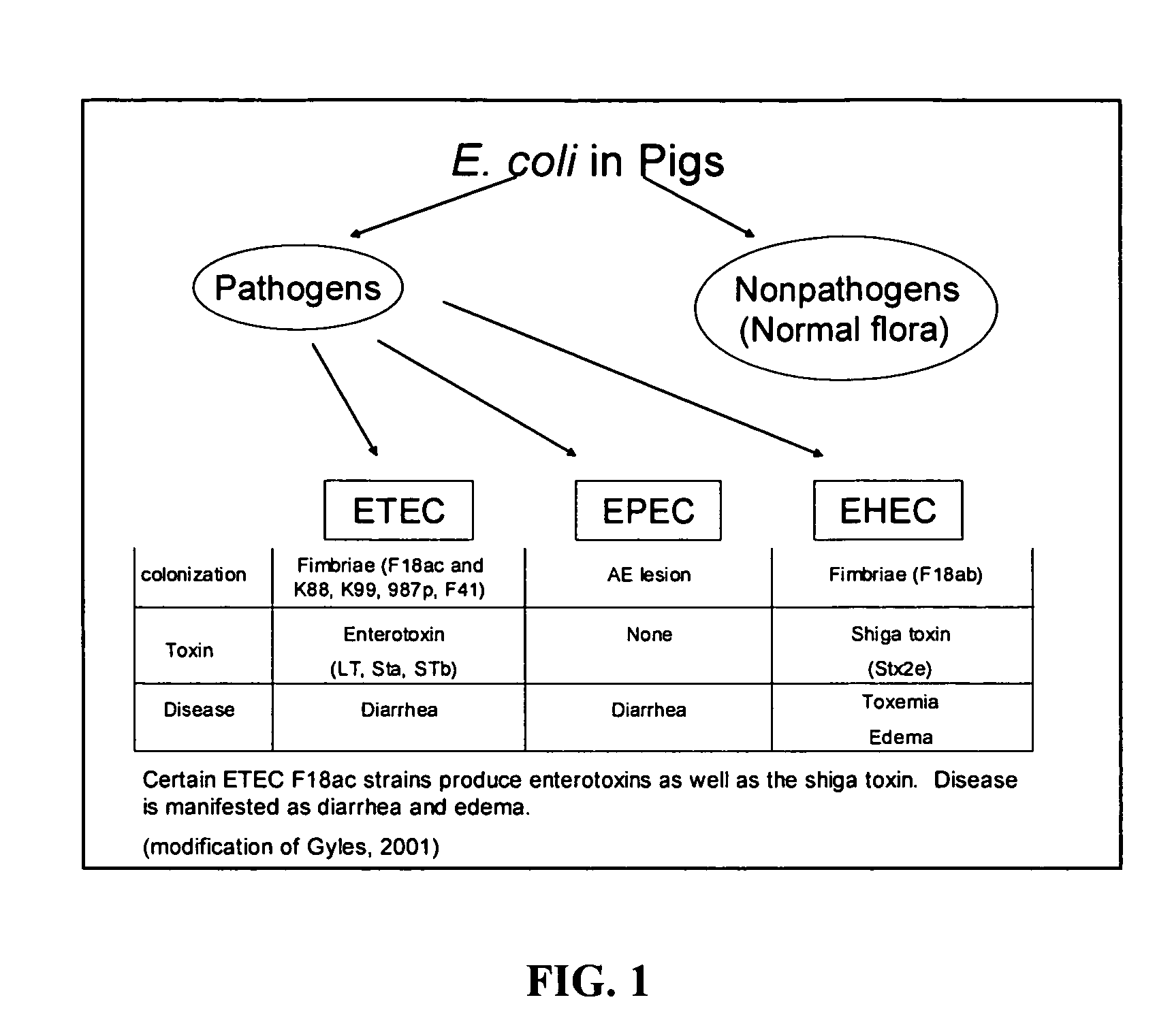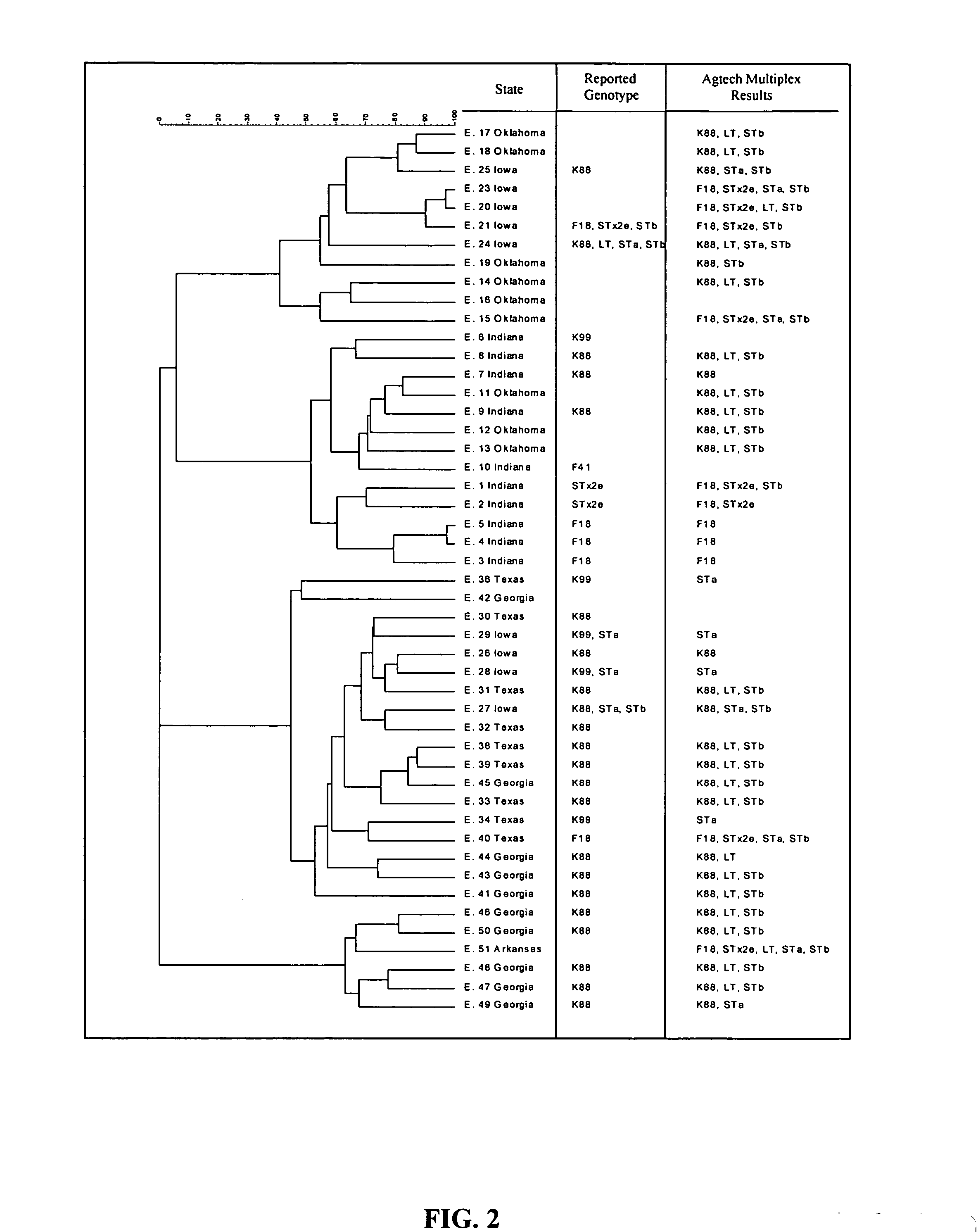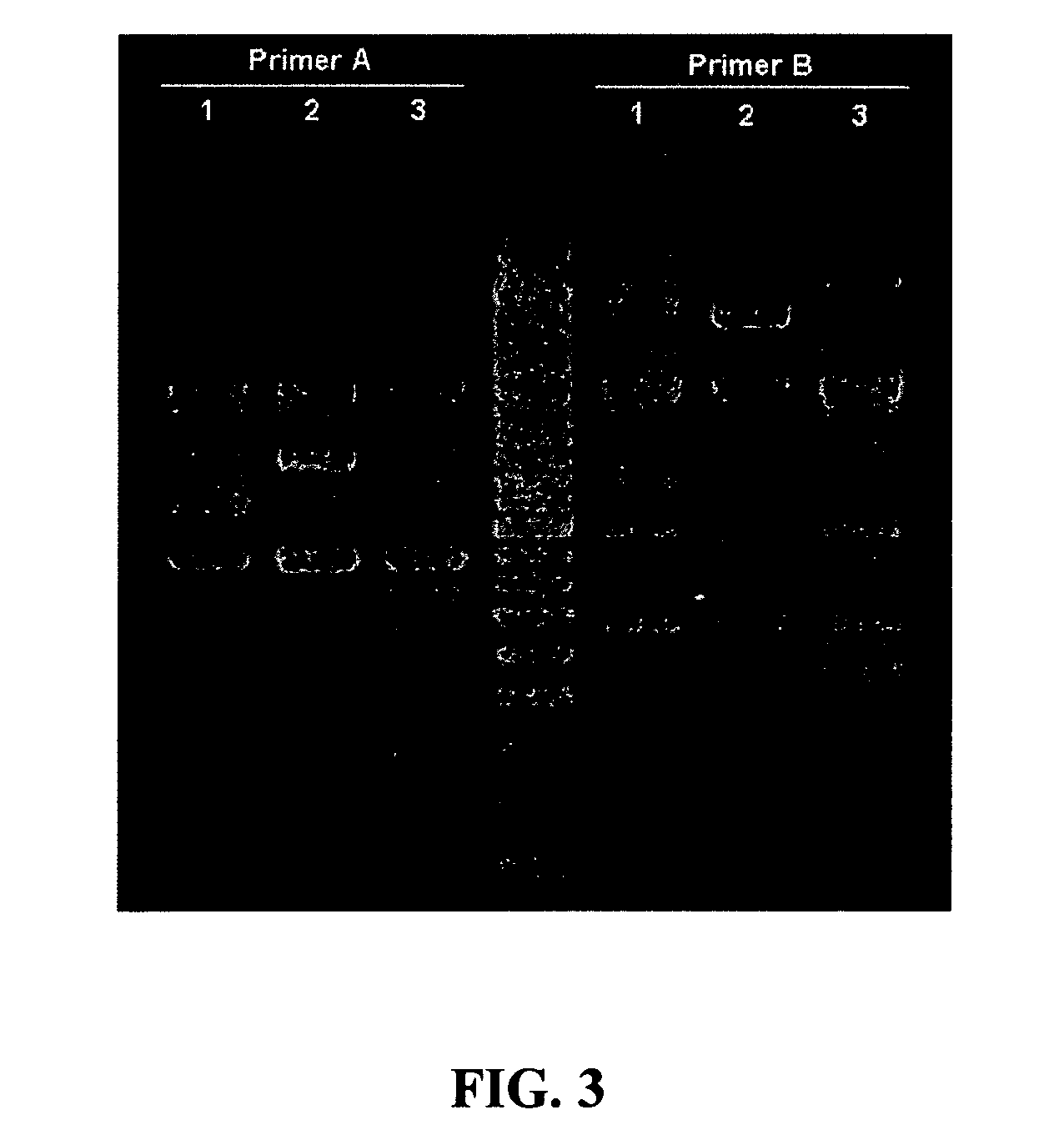Method and composition for reducing E. coli disease and enhancing performance
- Summary
- Abstract
- Description
- Claims
- Application Information
AI Technical Summary
Benefits of technology
Problems solved by technology
Method used
Image
Examples
example 1
Isolation of Active Metabolite Producing Bacillus Strains and Isolation of Pathogenic Strains
[0081] A. Bacillus Strains and Media:
[0082] Microbial strains from chicken litter, turkey litter, swine waste, and dairy waste, were screened for Bacillus strains. The environmental sample was weighed and mixed with sterile peptone blanks to make a 10−1 dilution. To pasteurize and, thus, to select for aerobic and facultative sporeformers, the sample was placed in a masticator for one minute and then heated for thirty minutes in a 63° C. water bath. The sample was then serially plated onto Tryptic Soy Agar (TSA) and incubated at 32 degrees for 24-48 hours to obtain isolates.
[0083] B. Pathogen E. coli Strains and Media:
[0084] An initial collection of pathogen strains was obtained from a swine diagnostic laboratory. This included two K88 and one F18 E. coli strains. The isolates were stored as frozen stocks at −85° C. in TSB supplemented with 10% glycerol. For the initial screening process,...
example 2
Activity of Bacillus Isolates Against E. coli
[0085] A. Zone of Inhibition Assay:
[0086] Activity against E. coli was determined by replica plating the Bacillus isolates onto indicator plates containing swine E. coli pathogens. Pathogen indicator plates were formed by transferring one percent of one of the swine E. coli pathogen inoculum, grown as described above, into tempered TSA. Seven milliliters of this agar was poured into a petri dish to make the pathogen indicator plates. The Bacillus isolates were replica plated onto pathogen indicator plates and were incubated overnight at 32° C. Plates were then observed for zones of inhibition for each pathogen. The Bacillus isolates that produced zones of inhibition were picked off the plate and grown in TSB to isolate the colony for reconfirmation of its activity. The isolates were stored as frozen stocks at −85° C. in TSB supplemented with 10% glycerol. Thirty thousand Bacillus isolates were screened for activity against E. coli. Fift...
example 3
Biochemical Tests on Bacillus Isolates
[0089] All Bacillus isolates that were confirmed to produce active metabolites were biochemical tested to identify isolates that were generally recognized as safe (GRAS). Testing was performed by both (1) traditional lab methods, including Gram stain, colony morphology, catalase production, starch utilization, casein utilization, nitrate reduction, indole formation, Voges-Proskauer, gelatin hydrolysis, and citrate production and (2) an API Bacillus biochemical test kit available from bioMérieux of Hazelwood, Mo. Thirty-six Bacillus isolates were screened using traditional biochemical methods, which showed that six of the thirty-six isolates tested as possible GRAS strains. These isolates were retested using the API test kit, and results showed that all six isolates were confirmed as belonging to species that are GRAS. The isolates producing the widest spectrum of activity against E. coli were biochemical tested using an outside reference labora...
PUM
| Property | Measurement | Unit |
|---|---|---|
| Fraction | aaaaa | aaaaa |
| Fraction | aaaaa | aaaaa |
| Temperature | aaaaa | aaaaa |
Abstract
Description
Claims
Application Information
 Login to View More
Login to View More - R&D
- Intellectual Property
- Life Sciences
- Materials
- Tech Scout
- Unparalleled Data Quality
- Higher Quality Content
- 60% Fewer Hallucinations
Browse by: Latest US Patents, China's latest patents, Technical Efficacy Thesaurus, Application Domain, Technology Topic, Popular Technical Reports.
© 2025 PatSnap. All rights reserved.Legal|Privacy policy|Modern Slavery Act Transparency Statement|Sitemap|About US| Contact US: help@patsnap.com



